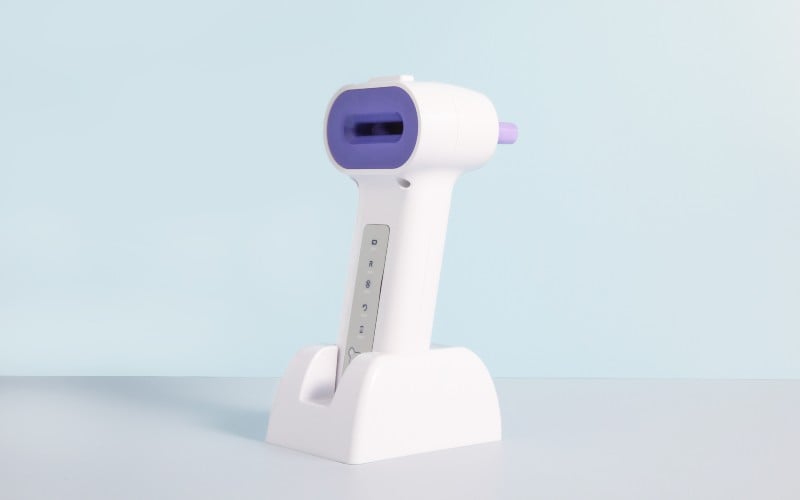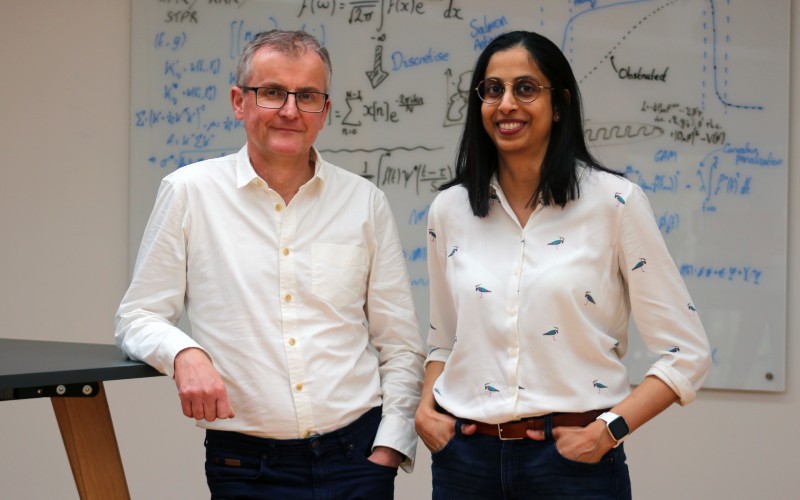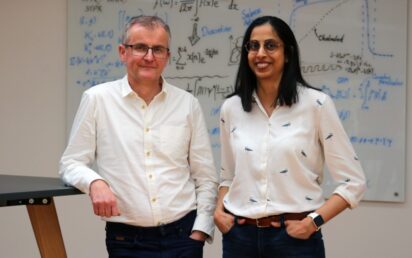MedTech company TidalSense has closed a £7.5 million fundraising round.
The Cambridge-based company has created a handheld medical device, N-Tidal, that detects changes in lung function sensitively and enables quicker, more accurate and automated diagnosis of chronic obstructive pulmonary disease (COPD), with asthma to follow.
Formerly known as Cambridge Respiratory Innovations, it is targeting the primary care and diagnostics provider market in the UK.
The funding, led by investors BGF and Downing, will also be used to further build out TidalSense’s diagnostics business.
COPD and asthma currently affect 1/10 of the world’s population, a figure that is rising steadily. It is one of the costliest conditions within healthcare systems, with the majority of costs associated with hospitalisations due to patient exacerbations in the later stages of disease.
Early detection and diagnosis have the potential to slow the trajectory of the disease and globally, the COPD and asthma diagnostics and monitoring market is estimated to be $8.2 billion per year.
However, current testing for COPD and asthma involve spirometry, an 1840s technology which takes 30 minutes per test and which has a number of known shortfalls. The process is widely known to be uncomfortable for patients, requires specialist training, is time consuming for both patients and clinicians and is technique dependent, often leading to misdiagnosis.
Furthermore, testing stopped during the pandemic and has had little pick up since, impacting already stretched patient wait times further; it’s estimated that in England alone, 200-250 per 500,000 of the population are awaiting a diagnostic test driving waiting times of up to 5-10 years.

By contrast, N-Tidal’s diagnostic test (pictured above) will be delivered at the point of care, can be completed within less than five minutes and doesn’t require specialist training. It relies on relaxed breathing, eliminating technique-dependence and therefore reducing misdiagnosis.
A preliminary usability study shows that 99% of patients agree that they find the test easy to perform. The device has been used on over 1000 patients, collecting over 2.3 million breaths from patients through clinical studies and trials. Using this data and the company’s AI platform, N-Tidal is able to provide near-real-time analysis of patient lung health and can provide a diagnosis within minutes.
“COPD is the third leading cause of death in the world and prevalence of respiratory diseases is rising,” said Dr Ameera Patel, CEO.
“But the current clinical pathway for COPD diagnostics is stuck in the 1800s and is ineffective, inefficient and expensive. In England alone, the NHS estimates that a third of people with hospital admissions from COPD have not been diagnosed, by which point their disease has progressed, their quality of life has deteriorated and the cost to the healthcare system has ballooned.
“Quick, reliable and accurate diagnostics have the potential to slash waiting lists and slow the trajectory of respiratory diseases. That’s why we’ve developed N-Tidal, which will enable earlier, accurate detection of COPD and will result in better patient outcomes and reduced costs for healthcare environments in the long-term.”
Tim Rea, head of early stage investments at BGF, commented: “As investors, we are focused on supporting transformational innovation. We have evaluated a broad range of propositions that involve the application of machine learning and are excited by the opportunities in the healthcare sector where we see scope to apply new tools to unmet needs.
“The number of people living with respiratory diseases, particularly COPD and asthma, is rising globally, yet diagnosis and management are poor and expensive. The current standard of care leads to increased hospitalisations and deaths, and puts additional burden onto already stretched healthcare systems.
“TidalSense’s solution is a prime example of where advanced machine learning techniques can be applied to deliver faster diagnostics, greater efficiencies and better patient outcomes.”


